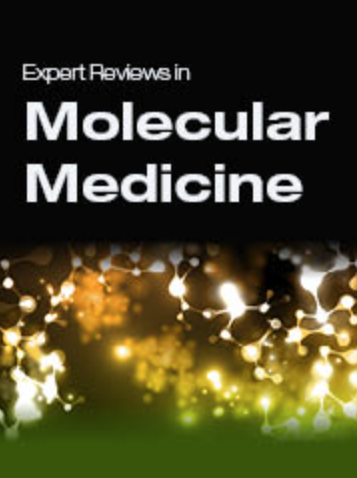Cancer mutation profiles predict ICIs efficacy in patients with non-small cell lung cancer
IF 4.5
2区 医学
Q1 BIOCHEMISTRY & MOLECULAR BIOLOGY
引用次数: 1
Abstract
Abstract Although immune checkpoint inhibitors (ICIs) have produced remarkable responses in non-small cell lung cancer (NSCLC) patients, receivers still have a relatively low response rate. Initial response assessment by conventional imaging and evaluation criteria is often unable to identify whether patients can achieve durable clinical benefit from ICIs. Overall, there are sparse effective biomarkers identified to screen NSCLC patients responding to this therapy. A lot of studies have reported that patients with specific gene mutations may benefit from or resist to immunotherapy. However, the single gene mutation may be not effective enough to predict the benefit from immunotherapy for patients. With the advancement in sequencing technology, further studies indicate that many mutations often co-occur and suggest a drastic transformation of tumour microenvironment phenotype. Moreover, co-mutation events have been reported to synergise to activate or suppress signalling pathways of anti-tumour immune response, which also indicates a potential target for combining intervention. Thus, the different mutation profile (especially co-mutation) of patients may be an important concern for predicting or promoting the efficacy of ICIs. However, there is a lack of comprehensive knowledge of this field until now. Therefore, in this study, we reviewed and elaborated the value of cancer mutation profile in predicting the efficacy of immunotherapy and analysed the underlying mechanisms, to provide an alternative way for screening dominant groups, and thereby, optimising individualised therapy for NSCLC patients.癌症突变谱预测ICIs在非小细胞肺癌患者中的疗效
尽管免疫检查点抑制剂(ICIs)在非小细胞肺癌(NSCLC)患者中产生了显著的应答,但受体的应答率仍然相对较低。通过常规影像学和评价标准进行的初始反应评估往往无法确定患者是否能从ici中获得持久的临床获益。总的来说,很少有有效的生物标志物被确定用于筛选对这种治疗有反应的NSCLC患者。许多研究报道,具有特定基因突变的患者可能受益于免疫治疗或抵抗免疫治疗。然而,单基因突变可能不足以预测患者从免疫治疗中获益。随着测序技术的进步,进一步的研究表明,许多突变经常同时发生,并提示肿瘤微环境表型的剧烈转变。此外,据报道,共突变事件协同激活或抑制抗肿瘤免疫反应的信号通路,这也表明了联合干预的潜在目标。因此,患者的不同突变谱(尤其是共突变)可能是预测或促进ICIs疗效的重要因素。然而,到目前为止,对这一领域还缺乏全面的认识。因此,在本研究中,我们回顾并阐述了癌症突变谱在预测免疫治疗疗效方面的价值,并分析了其潜在的机制,为筛选优势群体提供了一种替代方法,从而优化NSCLC患者的个体化治疗。
本文章由计算机程序翻译,如有差异,请以英文原文为准。
求助全文
约1分钟内获得全文
求助全文
来源期刊

Expert Reviews in Molecular Medicine
BIOCHEMISTRY & MOLECULAR BIOLOGY-MEDICINE, RESEARCH & EXPERIMENTAL
CiteScore
7.40
自引率
1.60%
发文量
45
期刊介绍:
Expert Reviews in Molecular Medicine is an innovative online journal featuring authoritative and timely Reviews covering gene therapy, immunotherapeutics, drug design, vaccines, genetic testing, pathogenesis, microbiology, genomics, molecular epidemiology and diagnostic techniques. We especially welcome reviews on translational aspects of molecular medicine, particularly those related to the application of new understanding of the molecular basis of disease to experimental medicine and clinical practice.
 求助内容:
求助内容: 应助结果提醒方式:
应助结果提醒方式:


